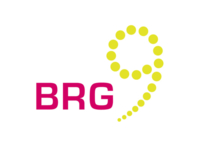Supporting students in learning how to read, understand, and construct data-visualizations.
Background
The amount and complexity of data have grown tremendously in the last decades. Consequently, tools to support people in handling the enormous amounts of data are in urgently needed. One way to accomplish this is using visualizations. They take advantage of the powerful human perceptual system, which is adept at spotting patterns in visual input and making sense of it.
Project Content
Visualization processes transform data into graphical representations. The transformation processes need to be fully transparent to enable users to reconstruct and decode the visual representations and draw sound conclusion about the underlying data. Even though humans are “visual beings” and understand visual representations more easily than other forms of data representations, the skills to create, read and interpret visualizations need to be acquired and trained. Unlike reading and writing text, people usually do not learn these skills in the course of their school education. Hence, most users have difficulties working with visual representations or identifying characteristics of the data on which they are based.
Goals
The goal of this research project is to explore how digital learning materials need to be designed and which pedagogical methods are best-suited to raise the level of visualization literacy (i.e., constructing and interpreting data-visualizations) in school education. We tap into the power of visualization grammars, that formally describe the visual mapping and data transformation processes and enable a (semi-)automated creation of learning materials.
Methods
We use a combination of well-established qualitative and quantitative methods based on a user-centred design cycle. The target group are students from the age of 14 up to 19. A central element of the project are co-creation workshops, in which the target group is actively involved – specifically in the analysis and requirements process as well as in the design and evaluation steps. For teaching we employ learning materials based on videos and animations, educational games, textual descriptions with graphics, and visualization technologies (i.e., visualization grammars). The resulting technical framework and guidelines for the design and integration of learning materials on data visualizations will be made available for education institutions and teachers.
Results
The project tackles challenges that arise in teaching competences on data visualization. Our approach, which makes use of interactive learning materials such as video and animation, educational games, and a website with textual descriptions for graphics, breaks new grounds; specifically, as we target students from the age of 14 to 19 years. Also, utilizing declarative visualization technology (i.e., visualization grammars) for creating learning materials in an (semi-) automated way is a completely new idea with substantial innovation potential. With the integration of our learning materials in the daily educational routine, the level of visualization literacy of students can be improved significantly. As we develop a technical framework and guidelines for the design and integration of learning materials for data visualizations, teachers, education institutions, as well as students in lectureships will benefit from the outcomes of the project.
You want to know more? Feel free to ask!
Publications
- Masaryk University/Simone Kriglstein [Tschechien]
- Austrian Computer Society (OCG)/Martin Kandlhofer, Ronald Bieber





